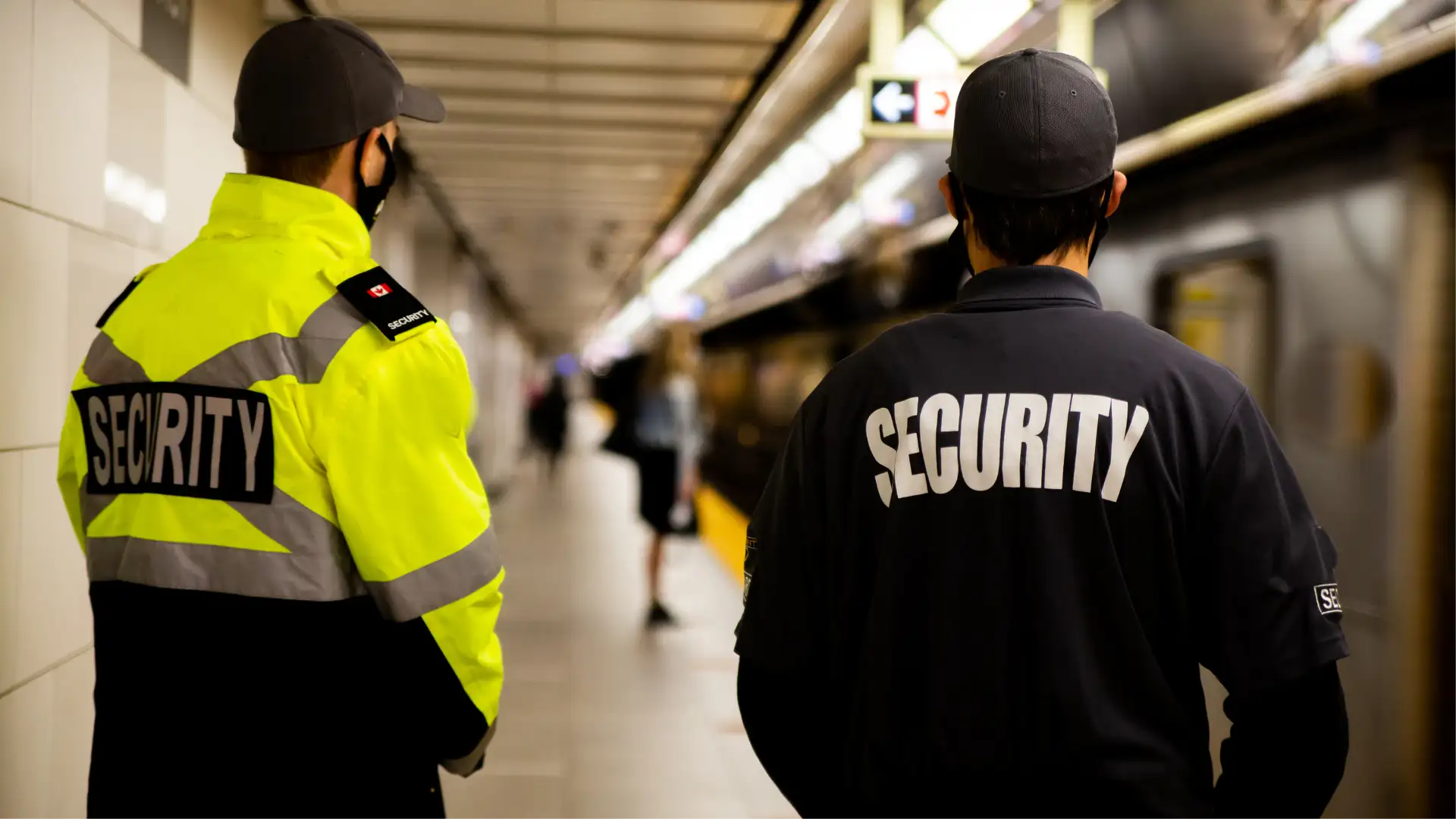As the name suggests, retail security refers to the security relevant to the retail industry. Retail security is often called retail shop security. Retail security can also be defined as security actions or measures retailers take to keep everyone safe on the retail premises. It helps in reducing the risks associated with theft.
Did you know?
There are some standard measures that most retail stores take, like hiring qualified retail security guards, installing CCTV cameras, implementing security systems, and more.
The level of security in the retail premises depends mainly on the type of store, its location, and several other factors. Some retail stores are at a higher risk of theft than others, depending on the nature of their business. For example, a gold or diamond jewellery shop has more high-value items than a beauty retail store. In that case, the security measures for a jewellery shop should be more strict.
Retail Security Systems
Retail security systems play a vital role in protecting against theft. These integrated systems are designed to minimise the risk of theft and to make such activities more challenging for thieves. It’s extremely important for the retail sector to adopt quality retail security systems to protect their businesses while keeping costs low. Some most effective retail security systems are:
- Security tagging: These systems prevent casual theft by catching occasional shoplifters unfamiliar with their operation.
- Anti-tampering devices: They are placed on exterior windows and doors to alert guards at a central location.
- Remote CCTV cameras: They help monitor activities through cameras installed at different places.
- Motion detectors: They are placed in outdoor areas like backyards.
- Electronic article surveillance: It prevents shoplifting from retail stores.
Retail Security Jobs
With increasing numbers of casual shoplifters and other major incidents, there is a high need for more security. Therefore, there are numerous security jobs available in retail stores in the UK. The two most popular retail security job roles are Security Guard and Retail Security Officer.
How to Find a Job in Retail Security
To find retail security jobs in London, please visit this link.
To find retail security jobs in Birmingham, please visit this link.
To find retail security jobs in Glasgow, please visit this link.
To find retail security jobs in Liverpool, please visit this link.
To find retail security jobs in Dublin, Ireland, please visit this link.
Also, find retail security jobs near me.
If you want to know about other security jobs, please read our blog, “A Comprehensive Guide to Top SIA Security Jobs.”
Earning Potential in Retail Security Jobs
It means if you work full-time, you can earn up to £2500 every month. If you have some experience and have the required qualifications, you can earn double of it by becoming a team lead or security manager.
What is a Retail Security Officer?
A Retail Security Officer plays an important role in preventing theft within a retail environment. Their primary duty is to monitor shoppers and identify suspicious shoplifting behaviours closely. Retail security officers ensure the safety and security of the public in the retail premises.
How to Become a Retail Security Officer / Retail Security Guard
If you want to become a retail security officer or retail security guard in the UK, there are two main steps you must follow.
Step 1: Book and Pass Your SIA Door Supervisor / SIA Security Guard Course
The first step is to book and pass either the SIA Door Supervisor Training Course or the SIA Security Guard Training Course.
The SIA Door Supervisor Training Course by Hurak Learning is a six-day comprehensive course with four units.
The SIA Security Guard Training Course by Hurak Learning is a four-day training course with three units.
You must pass the mandatory assessments to complete these training courses successfully. Take our free SIA Licence Training Mock Exam to prepare for the assessment.
Step 2: Apply for Your SIA Licence
Once you have completed your SIA training course, the next step is to apply for your SIA licence through the nearest post office. You will need to pay your SIA licence application fee of £184.
To understand which SIA licence you need, read our blog “A Comprehensive Guide to the SIA Licence Checker.”
Get your Legal SIA Licence by signing up for our SIA Security courses
Security Courses
Book NowRated Excellent
on major review sites

How Much Do You Earn as a Retail Security Officer?
In the UK, the average hourly wage of a Retail Security Officer is from £9.00 to £12.00. However, it depends on the location, experience, company, and seniority level.
What is Retail Cyber Security?
With the increasing number of online and mobile shopping, retailers are facing cyber threats such as payment card fraud, data breaches, and ransomware attacks. To protect against these threats, retail cyber security has become a critical aspect of the modern retail industry. Retail cyber security helps business owners protect their sensitive customer data, financial transactions, and the overall integrity of digital operations. Modern fraud prevention and digital trust platforms like Sift empower retailers to detect suspicious activity in real time, reduce false positives, and create a safer, more seamless shopping experience.
Retail Security Systems
With the increasing number of thefts, retail security systems are essential to overcome security issues in the retail industry. These systems help protect businesses from theft and vandalism, ensuring the safety of customers and employees. The three most important retail security systems are retail CCTV security systems, retail anti theft security systems, and retail security tagging systems. In parallel with security measures, retailers are also investing in technologies like a retail recommendation engine to enhance customer experience and boost sales through personalized product suggestions.
Retail CCTV Security Systems
Retail CCTV security systems offer comprehensive security solutions, typically consisting of cameras strategically placed in the most critical areas of the retail premises. CCTV cameras continuously monitor the premises, providing real-time video surveillance and recording capabilities.
Retail CCTV security systems are designed with advanced technology, including high-resolution cameras, motion detection, and remote access.
The major purpose of these systems is to help enhance the overall safety of the retail environment. However, they are also helpful in providing invaluable insights for improving operational efficiency and loss prevention.
Retail Anti Theft Security Systems
There is a range of technologies used for retail anti-theft security systems, such as security gates, Radio-Frequency Identification (RFID) systems, and Electronic Article Surveillance (EAS) tags.
Retail anti theft security systems help prevent theft by sounding alarms when items from the retail store are taken out of the premises without permission. They also keep track of products in real time to reduce losses and manage inventory in a better way.
All these systems are great for reducing theft and creating a safer shopping experience for customers. It also helps in increasing profitability for retailers.
How Security Tagging Works
Security tags are one of the most popular retail anti theft security systems. Security tags function by emitting a radio frequency (RF) signal, which is then detected by sensors placed at store exits. They are attached to the items in the retail store. An alarm sounds when these items pass through the sensors without being deactivated. It gives a signal to the retail staff that the buyer is trying to leave the retail store without paying for the item.
There are two main types of security tags, soft tags and hard tags.
- As the name suggests, soft tags are made from soft materials like paper or a piece of cloth. These tags are typically attached directly to fabric-based items. They are less visible than hard tags and can be used for a broader range of products.
- Hard tags are made from hard materials such as metal or plastic. They are attached to items using a pin. Due to their material, these tags are more visible than soft tags.




